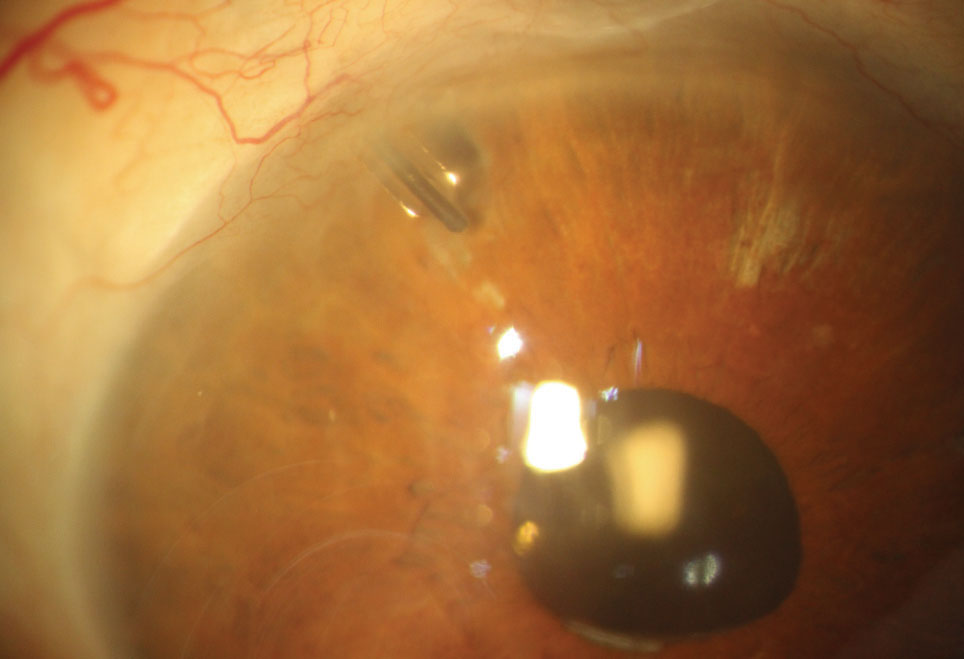 |
| Patients with dry eye or chronic angle closure may be more likely to need GDD revision or removal. Photo: Justin Schweitzer, OD. Click image to enlarge. |
Glaucoma drainage devices (GDDs) reduce intraocular pressure by creating an alternate drainage route for aqueous humor to bypass the diseased trabecular meshwork. Despite their benefits, GDDs are not without complications, such as tube exposures, that may necessitate repeat surgery. Researchers at Massachusetts Eye and Ear were able to elucidate subtle associations between both demographic and clinical characteristics and GDD removal or revision surgery by using data from the IRIS Registry. Dry eye disease and chronic angle-closure glaucoma were associated with higher risk of GDD revision or removal surgery, while factors such as diabetes, history of smoking and unknown/unreported race and ethnicity were associated with a lower risk of repeat GDD surgery.
The Registry noted 44,330 distinct patients who underwent at least one GDD implantation, 7.6% of whom underwent subsequent GDD revision or removal surgery within six years. This incidence was lower than previously reported rates. Stratified risk analyses demonstrated that unknown race/ethnicity (HR: 0.83/0.68), diabetes (HR: 0.84) and history of smoking (HR: 0.86) decreased the risk of GDD revision, while chronic angle-closure glaucoma (HR: 1.32) and dry eye disease (HR: 1.30) were associated with increased rates of GDD revision. Asian and Black patients were noted to have a decreased risk of GDD removal, while Hispanic and Latino patients were at increased risk for GDD revision.
Factors associated with a decreased average time (in days) from original GDD surgery to revision/removal included male sex, unknown race and right-eye laterality. Factors associated with an increased average time to GDD revision/removal included a history of a past eye procedure and active smoker status. Patients with diabetes were found to have GDD revision/removal earlier during their follow-up period compared with patients without diabetes.
“Although current evidence on risk factors associated with GDD revision or removal surgery is conflicting, the power provided by the enormity and diversity of the IRIS Registry may provide a more accurate representation of the factors associated with repeat GDD surgery, the authors concluded in their paper. “Thus, it is helpful to consider the aforementioned factors when determining the prognosis of GDD surgery and choice for treatment.”
Hall NE, Chang EK, Samuel S, et al. Risk factors for glaucoma drainage device revision or removal using the IRIS Registry. Am J Ophthalmol. April 2, 2022. [Epub ahead of print]. |

